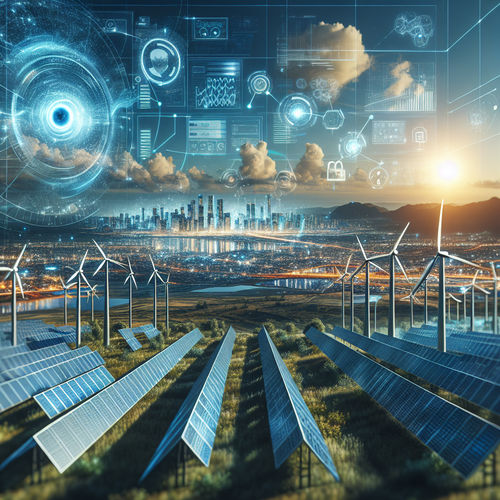
The Rise of AI in Sustainable Energy Solutions
The Rise of AI in Sustainable Energy Solutions
As the world maneuvers through the complexities of climate change and adapting to sustainable practices, technologies like Artificial Intelligence (AI) have emerged as pivotal players in revolutionizing the energy sector.
What is AI in Sustainable Energy?
AI in sustainable energy refers to the utilization of advanced algorithms and machine learning to enhance energy production, distribution, and efficiency. From optimizing energy systems to predicting energy consumption patterns, AI holds the promise of transforming the energy landscape.
Benefits of AI in Energy Solutions
- Enhanced Efficiency: AI can predict demand and adjust supply accordingly, reducing waste and conserving resources.
- Predictive Maintenance: AI algorithms can predict equipment failures, allowing for timely maintenance and reduced downtime.
- Optimization of Renewable Sources: AI can analyze weather patterns and optimize the functionality of solar and wind energy sources.
Case Studies of AI Implementation
Several companies are already leading the charge in integrating AI into their sustainable energy strategies:
- Google: Google has implemented AI to increase the efficiency of its data centers, leading to significant reductions in energy use.
- PGE: Pacific Gas and Electric has utilized AI systems to manage its grid more effectively, integrating renewable energy sources and enhancing overall efficiency.
Future Trends in AI and Energy
The fusion of AI and sustainable energy solutions is not merely a trend – it’s a revolution. The emergence of smart grids, AI-driven energy storage, and real-time energy management systems signifies a transformative journey towards efficient energy utilization.
To delve deeper into the role of AI in enhancing energy solutions, check out our previous post on Exploring the Impact of AI on E-commerce Trends, where the principles of AI optimization are discussed in various sectors.
Challenges Ahead
Despite the advantages, there are hurdles to overcome such as data privacy concerns, AI algorithm bias, and the need for substantial investment in technology.
Conclusion
As we stride towards a more sustainable future, the integration of AI in energy solutions stands out as a beacon of hope, bringing innovation and efficiency to the forefront of the energy sector. The collaboration between technology and sustainability is essential for addressing the critical challenges posed by climate change.















